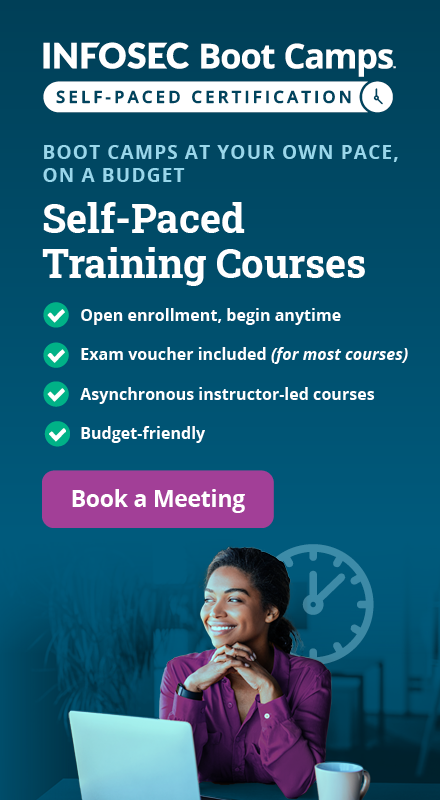Top 11 cloud computing certifications for 2025
Have you ever wondered how your favorite streaming service delivers flawless content? Or how online collaboration tools keep your team connected across continents? These feats, which were impossible a couple of decades ago, are made possible through cloud computing. Cloud computing enables the on-demand delivery of IT resources, everything from storage and database to servers and software, over the internet.
Cloud computing has become the backbone of innovation. Businesses of all sizes are migrating to the cloud to leverage its scalability, flexibility and cost-effectiveness. This shift creates a booming job market for cloud computing practitioners. Cloud computing certifications can equip you with the skills and knowledge to thrive in this dynamic environment.
As more data moves to the cloud, the need for robust security becomes even more important. Earning a cloud computing certification focusing on security puts you at the intersection of cybersecurity and cloud computing, making you a highly sought-after professional.
In this article, we'll look at the certifications that will propel your cybersecurity career into the cloud-first landscape of 2025.
Understanding cloud computing certifications
Cloud computing certifications are a formal recognition that you have the skills to design, implement and manage cloud environments. But it's more than something to hang on your wall. It's a ticket to career advancement and professional growth.
As we approach 2025, these certifications have evolved to keep up with the rate of digital transformation in our world. They now cover a broad range of skills, from basic cloud concepts to advanced security measures and AI integration. Cloud computing has received a major upgrade, and these certifications are your key to keeping up.
Why cloud computing certifications matter in cybersecurity
The digital world contains a treasure trove of valuable data, attracting all types of cybercriminals. As more organizations migrate to the cloud, the need for robust cloud security becomes even more important.
Cloud computing certifications with a security focus equip you with knowledge and skills to:
- Identify and mitigate cloud-specific security threats: Cloud environments introduce unique vulnerabilities, and these certifications teach you how to recognize these threats and apply effective strategies to reduce their impact.
- Secure cloud configurations: Misconfigurations are a major cause of cloud security breaches. Cloud certifications will teach you the best practices for configuring cloud services securely to minimize attack surfaces.
- Implement powerful access controls: Controlling who has access to data and systems is crucial in the cloud. Certifications teach you how to implement multi-factor authentication and other access control measures to keep unauthorized users out.
- Stay up to date with the latest cloud security trends: Cloud computing certifications ensure you have access to the latest cybersecurity best practices and emerging threats specific to cloud environments.
To learn more about the changing cloud security landscape, download our free guide, Cybersecurity Trends & Certification Checklist.
Is a cloud computing certification worth it?
Investment in a cloud computing certification has a high ROI. Here's why:
- Increased earning potential: IT professionals with cloud certifications can command significantly higher salaries. For example, the average salary of a CompTIA Security+ certification holder is $99,446 and is considered an entry-level certification. Cloud computing practitioners with an advanced CompTIA CASP+ certification get paid $165,441 on average. Check our free Cybersecurity Salary Guide for more details on what type of salary a cloud certification can help you earn.
- Enhanced career opportunities: Cloud skills are in high demand across industries. Earning a reputable cloud computing certification demonstrates your proficiency and makes you a highly competitive candidate for a broader range of cybersecurity positions.
- Future-proof your skills: Cloud computing is the future of IT. Cloud certifications help you stay ahead of the curve with the education and expertise required to advance in this constantly changing landscape.
Top cloud computing certifications in 2025
The following certifications validate your expertise and open doors to new career opportunities in cloud computing and cybersecurity in 2025 and beyond.
AWS Certified Solutions Architect – Associate
Possessing the AWS Certified Solutions Architect – Associate certification proves you can design and deploy scalable systems on AWS, making it a valuable asset for any IT professional. This certification is relevant to cybersecurity professionals as it covers security best practices for AWS, including identity and access management, encryption and secure data handling.
The AWS Certified Solutions Architect exam (SOA-C03) is 130 minutes long and has 65 multiple-choice and multiple-response questions. There are no formal prerequisites, but it's recommended that a candidate have hands-on experience with AWS services.
With this certification, you can pursue roles such as:
- Cloud security architect
- AWS solutions architect
- Cloud security engineer
In addition to the AWS Certified Solutions Architect – Associate, AWS offers other certifications that can further enhance your skills:
- AWS Cloud Practitioner – Foundational: This entry-level certification provides a basic understanding of AWS cloud concepts.
- AWS Solutions Architect – Professional: This advanced certification builds on the associate level, focusing on complex AWS Solutions.
- AWS Security – Specialty: This certification is designed for professionals who want to specialize in AWS Security.
- AWS Certified AI Practitioner – Foundational (coming soon): This new certification will focus on AI and machine learning services on AWS.
Microsoft Certified: Azure Fundamentals
The Microsoft Certified: Azure Fundamentals certification is an excellent starting point for anyone looking to build a career in cloud computing with Microsoft Azure. It will introduce you to the core concepts and services in Microsoft Azure, providing a foundational understanding of its security features. What you'll learn about security best practices, identity access and management, and Azure security services will help prepare you for cybersecurity roles.
The Microsoft Certified: Azure Fundamentals exam (AZ-900). This exam has 40-60 questions and is 85 minutes long. There are no prerequisites for the exam, but you should have 3-4 years of IT experience.
This certification can lead to roles like:
- Azure administrator
- IT support specialist
- Cloud engineer
Additional certifications in the Azure path include:
- Azure Administrator Associate: Focuses on managing Azure subscriptions, securing identities and implementing storage solutions.
- Azure Security Engineer Associate: Specializes in managing security for Azure environments, including identity and access management, platform protection, and data and application security.
ISC2 CCSP
The ISC2 Certified Cloud Security Professional (CCSP) certification focuses on the critical intersection of cloud computing and information security. It's one of the go-to cloud security certifications for those looking for broad vendor-neutral option. The CCSP certification covers a broad range of cloud security topics, including cloud architecture, governance, risk management and compliance.
Candidates must have at least five years of cumulative, paid work experience in IT, with three years in information security and one year in one or more of the six domains of the CCSP Common Body of Knowledge (CBK). The ISC2 CCSP exam consists of 150 multiple-choice questions, and you have four hours to answer them.
With a CCSP certification, you can pursue roles such as:
- Cloud security architect
- Cloud security consultant
- Information security manager
CompTIA Cloud+
The CompTIA Cloud+ certification is a vendor-neutral credential that validates the skills needed to deploy and automate secure cloud environments. It covers cloud architecture and design, cloud deployment, operations, support and has a significant focus on cloud security.
Candidates should have two to three years of experience in system administration. The Cloud+ exam contains a maximum of 90 questions, and you have 90 minutes to answer them.
Cloud+ can lead to roles like:
- System administrator
- Cloud administrator
- Cloud project manager
In addition to the Cloud+ certification, the CompTIA Data+ certification provides critical cybersecurity data science skills that have become necessary to pull insights from scanning tools, intrusion detection systems and other security applications. Data analysis for network traffic analysis is a key component of this certification. By mastering this skill, you can effectively analyze network traffic data to identify potential threats and anomalies.
Google Cloud Certified – Professional Cloud Architect
The Google Cloud Certified – Professional Cloud Architect certification covers designing secure and compliant application infrastructure on Google Cloud Platform (GCP).
Google recommends three or more years of industry experience, including one year of designing and managing solutions using GCP. The exam is two hours long and contains 50 to 60 multiple-choice and multiple-select questions.
This certification prepares you for roles such as:
- Cloud architect
- Cloud engineer
- Cloud security specialist
Choosing the Right Cloud Computing Certification for Your Cybersecurity Career
As more businesses embrace the cloud, the demand for skilled professionals to secure these environments has grown. Earning a cloud computing certification with a security focus opens a world of career opportunities, boosts your earning potential and prepares you for the future in the evolving cybersecurity landscape.
When choosing the right cloud computing certification, consider the following factors:
- Career goals: Are you aiming to become a cloud security architect, a cloud engineer or a cybersecurity consultant? Different certifications cater to different roles, so align your choice with your career aspirations.
- Experience level: If you're new to cloud computing, starting with foundational certifications like AWS Cloud Practitioner or Microsoft Certified Azure Fundamentals might be beneficial. For more experienced professionals, an Advanced certification such as AWS Certified Solutions Architect or ISC2 CCSP can provide deeper insights and greater career advancement.
- Specific skills: Determine the specific cybersecurity skills you want to develop. For example, certifications like AWS Security Specialist or Azure Security Engineer Associate are excellent choices if you're interested in cloud security. These certifications focus on securing cloud environments and managing cloud security risks.
To help guide your decision, download the following resources for more information on various certifications and their benefits:







